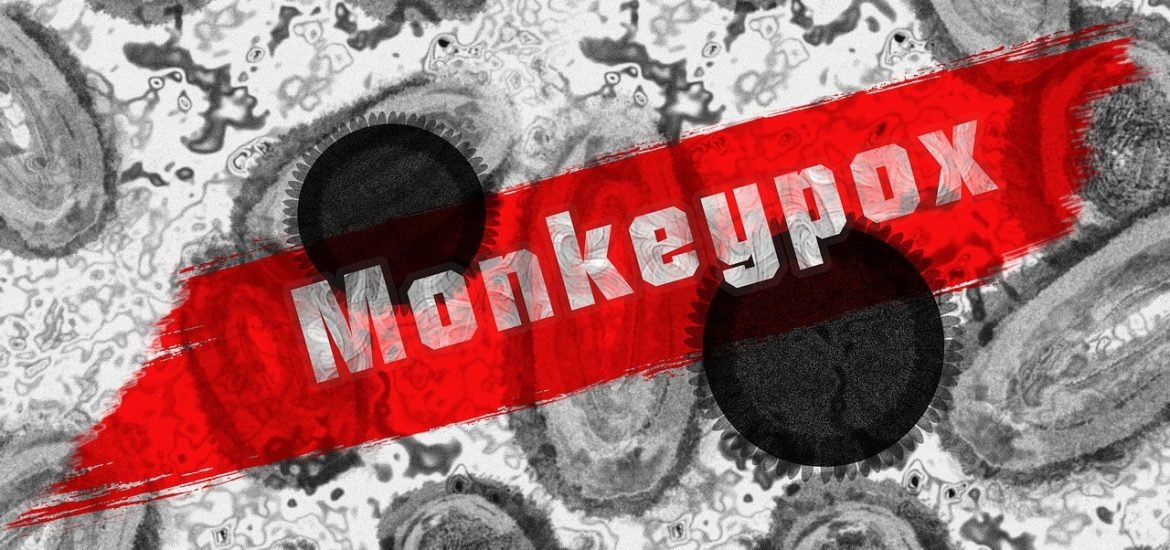
Some antiviral medications may be able to shorten symptoms and reduce the amount of time a patient with monkeypox is contagious, according to a study published in The Lancet Infectious Diseases journal. The study examined seven patients diagnosed with monkeypox in the UK between 2018 and 2021, representing some of the first known transmission cases outside of Africa.
Monkeypox is a close relative of the smallpox virus and is a rare disease classified as High Consequence Infectious Disease (HCID) but the UK Health Security Agency. Most commonly, it spreads from animals to humans via an animal bite or eating uncooked infected meat, but it can also spread from humans to humans. The first case was identified in 1970 in the Democratic Republic of Congo and is rarely seen outside Africa.
Symptoms include fever, rash, and swollen lymph nodes. In more severe cases, it can also cause inflammation of the lungs, brain, and eyes. At the moment, there are no treatments for monkeypox, and researchers are not even sure how long patients remain contagious. Usually, patients are maintained in isolation to prevent spreading the disease to others. Mortality rates vary greatly in different countries, with up to 10% in the Congo but less than 3% in Nigeria. Until now, cases outside Africa have been rare, but recently significant outbreaks were reported in several European countries, including the UK, Portugal, and Spain.
A team of researchers from Liverpool University, UK, tested two antivirals called tecovirimat and brincidofovir. The results found some evidence that tecovirimat may be effective, but brincidofovir had no clinical benefit to patients. As nobody really knows the best treatment strategies to address this disease, this data could support global efforts to understand the clinical features of monkeypox and how it’s transmitted.
“As public health officials are trying to understand what is causing the May 2022 monkeypox outbreaks in Europe and North America – which have affected several patients who reported neither travel nor an identified link to a previously known case – our study offers some of the first insights into the use of antivirals for the treatment of monkeypox in humans,” said Dr. Hugh Adler of the Liverpool University Hospitals NHS Foundation Trust, lead author on the paper. “Although this latest outbreak has affected more patients than we had previously encountered in the UK, historically monkeypox has not transmitted very efficiently between people, and overall the risk to public health is low.”
“The cases reported in our study, in addition to the recent outbreaks, highlight the importance of maintaining a collaborative network of centres on standby to manage sporadic outbreaks of high consequence pathogens, such as monkeypox. The cases we observed were challenging and resource-intensive to manage, even in the high-income setting of the UK. With international travel returning to pre-pandemic levels, public health officials and healthcare workers around the world must remain vigilant to the possibility of new cases of monkeypox,” added Dr. Nick Price of Guy’s & St Thomas’ NHS Foundation Trust, senior author on the paper.
Of the seven cases included in this study, four could be traced back to West Africa, while the remaining three occurred after human-to-human transmission in the UK. This included the case of a healthcare worker who contracted monkeypox 18 days after the initial exposure to the virus and was the first example of monkeypox transmission outside of Africa.
Four patients between 2018 and 2019 were treated with brincidofovir a week after the initial rash was detected. This treatment didn’t benefit the patients, but researchers don’t know if it would have worked if it had been administered earlier or at a higher dose. Despite this lack of effect, all patients made a full recovery.
Three other cases were reported in 2021 in a family with an infected member travelling from Nigeria. The original patient infected two other family members, including a child. One of the patients was treated with tecovirimat and experienced symptoms for a shorter period, but the authors quickly note that further research is needed to confirm the effectiveness of this antiviral. All patients had a mild disease and recovered, but one of the patients had a relapse about six weeks later.
“During previous outbreaks of monkeypox, patients were considered infectious until all lesions crusted over. In these seven UK cases, viral shedding was observed for at least three weeks following infection. However, data on infectivity remains limited and is an important area for future study,” said Dr. Catherine Houlihan of the UK Health Security Agency and University College London, one of the authors of the paper.
Adler H, Gould S, Hine P, Snell L, Wong W, Houlihan C et al. (2022) Clinical features and management of human monkeypox: a retrospective observational study in the UK. The Lancet Infectious diseases, DOI:https://doi.org/10.1016/S1473-3099(22)00228-6